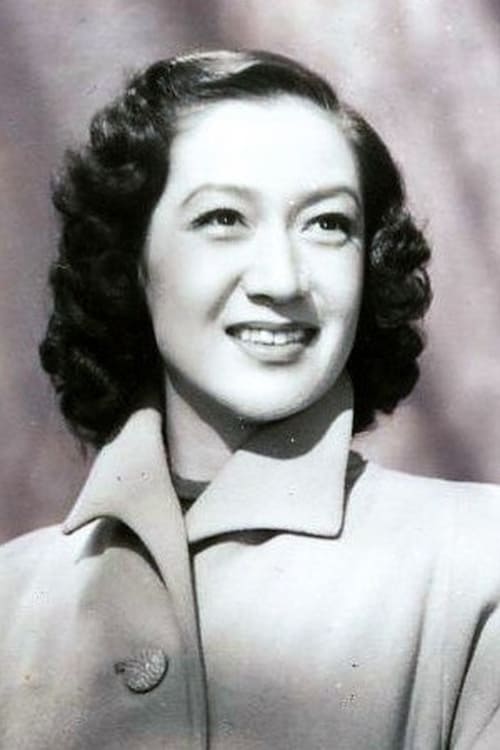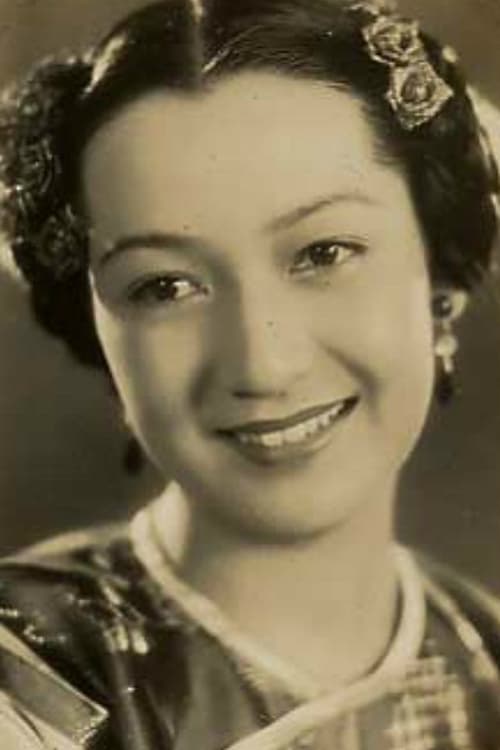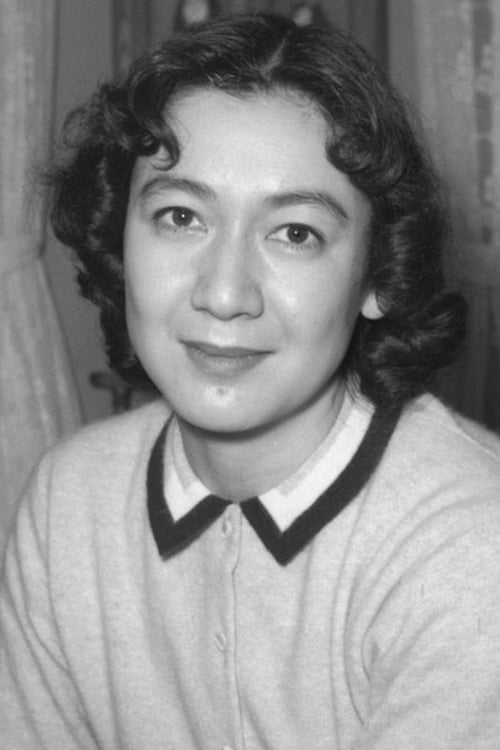
Setsuko Hara
出生 : 1920-06-17, Yokohama, Kanagawa, Japan
死亡 : 2015-09-05
略歴
From Wikipedia, the free encyclopedia.
Setsuko Hara (June 17, 1920 – September 5, 2015) was a Japanese actress who appeared in six of Yasujirō Ozu's films, most notably as Noriko in the 'Noriko Trilogy': Late Spring (1949), Early Summer (1951) and Tokyo Story (1953). Her other films for Ozu were Tokyo Twilight (1957), Late Autumn (1960) and finally The End of Summer in 1961.
She was born Masae Aida in Yokohama, Kanagawa prefecture. She came to prominence as an actress at an early age, in the 1937 German-Japanese co-production Die Tochter des Samurai (Daughter of the Samurai), known in Japan as Atarashiki Tsuchi (The New Earth), directed by Arnold Fanck and Mansaku Itami.
She also starred in films by Akira Kurosawa, Mikio Naruse and other prominent directors.
She was called "the Eternal Virgin" in Japan and is a symbol of the golden era of Japanese cinema of the 1950s, although she is mostly unknown in the US. She suddenly quit acting in 1963 (the same year as Ozu's death), and had since led a secluded life in Kamakura, refusing all interviews and photographs. Her last major role was Riku, wife of Ōishi Yoshio, in the 1962 film, Chushingura. She was the inspiration for the protagonist of the 2001 movie Millennium Actress.
Description above from the Wikipedia article Setsuko Hara, licensed under CC-BY-SA, full list of contributors on Wikipedia.

Noriko Setsuko

Noriko Setsuko
The film reconstructs the life of Noriko by selecting scenes from Oz Yasujiro’s films featuring actor Hara Setsuko.

Self (archive footage)
A tribute to the legendary Japanese film director featuring the reflections of filmmakers Lindsay Anderson, Claire Denis, Hou Hsiao-hsien, Aki Kaurismäki, Stanley Kwan, Paul Schrader, and Wim Wenders
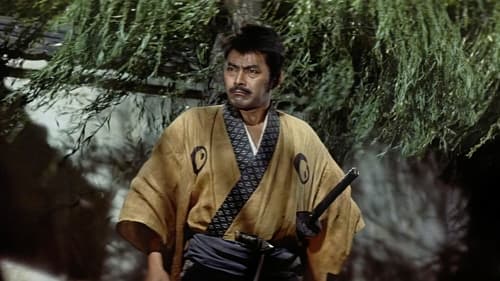
Riku Oishi
The story tells of a group of samurai who were left leaderless (becoming ronin) after their daimyo (feudal lord) was forced to commit seppuku (ritual suicide) for assaulting a court official named Kira Yoshinaka, whose title was Kōzuke no suke. The ronin avenged their master's honor after patiently waiting and planning for over a year to kill Kira. In turn, the ronin were themselves forced to commit seppuku for committing the crime of murder.
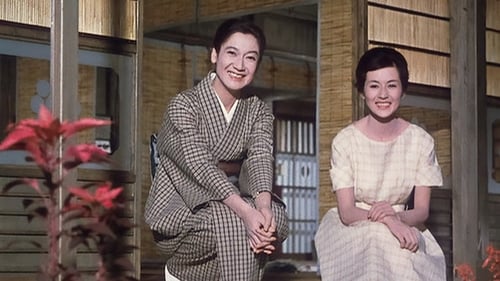
Akiko
京都の造り酒屋・小早川の長男は早く死に、その未亡人の秋子に親戚の北川が再婚話を持ってくる。相手の磯村は鉄工所の社長でちょっとお調子者だ。また、次女の紀子も婚期を迎えて縁談が持ち込まれるが、彼女は大学時代の友人で、札幌に転勤することになっている寺本に思いを寄せていた。一方、小早川の当主・万兵衛は最近、行き先も告げずにこそこそと出かけることが目立つようになった。店員の丸山が後を尾けるが、したたかな万兵衛に見つかってしまい失敗。小早川の経営を取り仕切る入り婿の久夫と長女の文子夫婦が心配して行方を突き止めると、そこはかつての愛人・佐々木つねの家だった。さんざん死んだ母を泣かせた万兵衛の女好きがまた始まったと怒る文子。万兵衛はつねとその娘百合子との触れあいに、特別な安らぎを感じているようだったが、そこで倒れて亡くなる。葬式の日、紀子は秋子に札幌へ寺本と一緒に行く決心を告げるのだった。

Oren Aikawa
In Meiji era Japan a sixth grade boy is smart, likable and confident and owing to his academic success liked by his teacher. Things are not going well at home, however, where his father does not work leaving the mother to toil . With the boy's family having no money he cannot progress his education and has to drop out of school. A neighbour, who is a bookstore owner, offers the family money to allow the boy to continue his schooling, but the father is too proud to accept and rebuffs the offer forcing the boy to work.

Akiko Miwa
A woman and her daughter are each forced to contend with an increasing pressure to marry, particularly from three men who knew her late husband.

A skilled country doctor's talents are such that he can even perform operations as difficult and novel as removing a patient's kidney for the first time in Japan. Unfortunately for him, however, his wife's addiction to gambling is of such a magnitude that he is down to selling his underwear to make money. The image sticks and he becomes known as the 'underwear doctor.' On the other hand, his successful surgery's patient is so grateful he himself wants to become a physician.
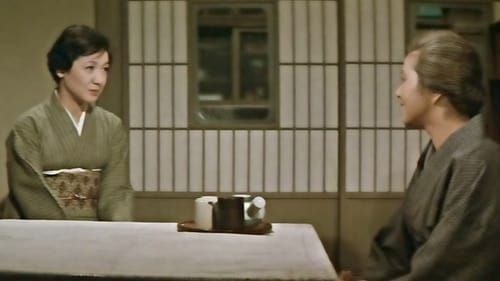
Sanae Soga
Sanae is left a widow after her prestigious husband dies, but holds the proceeds of a million yen insurance policy. Being childless, her former in-laws have no objection to her return to her own family.
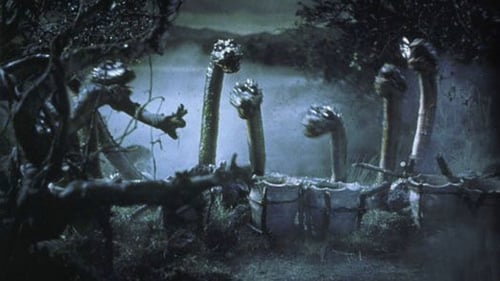
Amaterasu, the Sun Goddess
The legend of the birth of Shintoism. In Fourth Century Japan, the Emperor's son Ouso expects to succeed his father on the throne, but Otomo, the Emperor's vassal, prefers Ouso's stepbrother, and conspires to have Ouso die on a dangerous mission he has contrived. But Ouso prevails in the mission and returns to his father's castle under a new name, Prince Yamato Takeru. Otomo plots to have the Prince sent into even greater danger, but Otomo is unaware that the gods have favored the Prince and the outcome is far from what any of them expected.

Story of a family torn apart when Teiji (Mori), the father, develops intimate feelings for a runaway (Kuga) the family has taken into their home.
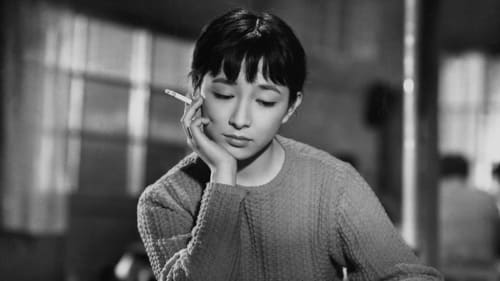
Takako Numata
親子愛の断層に焦点を当てた巨匠・小津安二郎の異色作――― 杉山周吉は、20年前、妻にその愛人と逃げられ、長女を嫁がせた今、次女・明子とひっそりと暮らしている。だが、最近明子の帰宅が遅れがちなことに気をもんでいた。明子は年下の恋人の子を妊娠、それを知って姿を消してしまった彼を毎晩探しさまよっていたのだ。そんなある日、ふとしたことから明子は自分や父を捨てた実母と再会。何も知らなかった明子は、母のみだ…
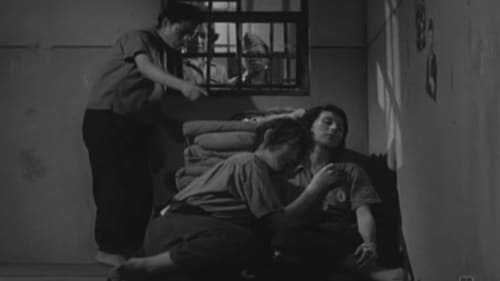
Prison Officer
The woman prison has a cast all with a story of their own and with no dull or routine day. There is an employee who is divorced after her husband had an affair. She loves the jailed criminals and almost sees them as family. One day at a workshop someone faints while working hard to make money because she has a poor boyfriend. Another inmate is knocked up Another is a mother and has her child with her.
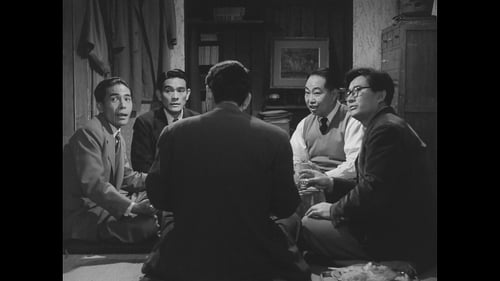
Fumiko Namiki
A husband and wife's pet peeves and minor irritations escalate into major rifts and animosity.

Mom
A little girl who falls into a lake and is saved by a god who then takes her up to the clouds and shows her what the world was like before she was born and what the world would be like if she where never born. While in the clouds she meets her grandparents and a few other people she loved who have passed on.
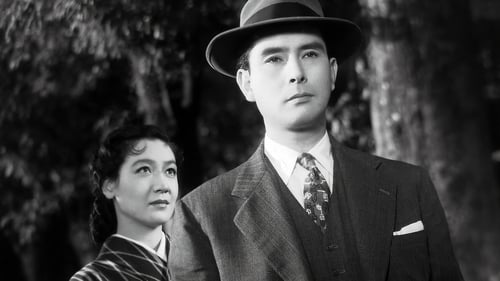
Ogata Kikuko
成瀬巳喜男監督が川端康成の同名小説を映画化した原節子の代表作の一つ。鎌倉を舞台に、老境に入った男が、同居する若く美しい息子の嫁に抱く複雑な心模様を丁寧に描く。
鎌倉で息子夫婦と暮らす尾形信吾は、老いを感じ、寂しさを感じる日々を送っていた。息子・修一の浮気に耐える嫁の菊子を不びんに思う信吾は、いつしか菊子にひかれるようになるが、やがて菊子の妊娠がわかり…。
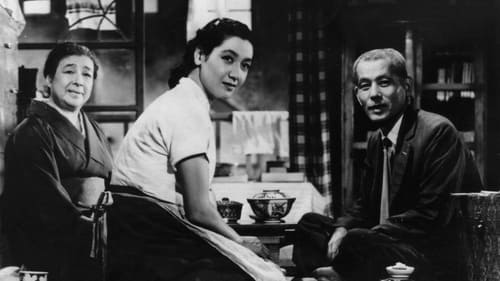
Noriko Hirayama
戦後変わりつつある家族の関係をテーマに人間の生と死までをも見つめた深淵なドラマ。故郷の尾道から20年ぶりに東京へ出てきた老夫婦。成人した子どもたちの家を訪ねるが、みなそれぞれの生活に精一杯だった。唯一、戦死した次男の未亡人だけが皮肉にも優しい心遣いを示すのだった……。

Sachiko
A family comprised of a man, woman and their only son is torn apart when the father, who is a doctor with his own clinic, is to go off to war. Soon the wife and the son are left without an update of his status and whether he is alive or not. With the clinic lying dormant the doctor's wife rents the premises to her husband's underling. This is a man who does not accept payment from the poor. The woman, in the meantime, works at a restaurant whose owner being ill has given her additional duties. Her younger sister is an unmarried finance writer who also lives with them. It is both sisters, however, who receive marriage proposals.
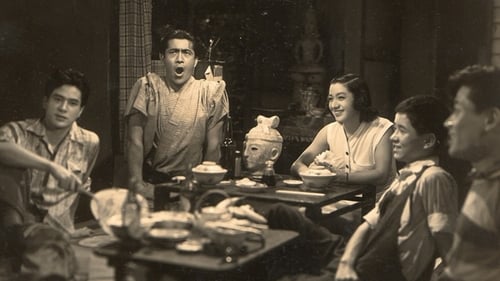
Yuki
Following the Second World War, the lives of various people in a poverty-stricken area of Tokyo are entertwined. Pachinko parlor girls, shoeshine boys, a maker of costume jewelry, and a streetcorner artist all struggle to make their livings and to find happiness in difficult surroundings.

Once an average and seemingly ordinary Tokyo girl, she suddenly finds herself as a TV star owing to her discovery by a casting company, which noticed photographs that her cousin had sent. When another actress falls ill she is given the role instead. Her first film is a success propelling the young actress to popularity, her own fans, money and a house. While everything looks dandy from the outside not all is well within the family however.

Kanae, who broke up with her husband and moved to her uncle's house, met two men when her father, a university professor, collapsed. Michihara, a wealthy man and Miyashita, a youth scholar. Kanae is attracted to Miyashita, but ...
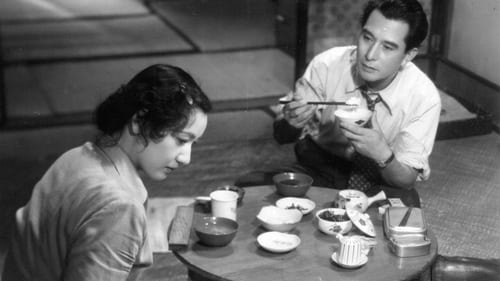
Michiyo Okamoto
Michiyo lives in the small place Osaka and is not happy with her marriage, all she does is cook and clean for her husband.
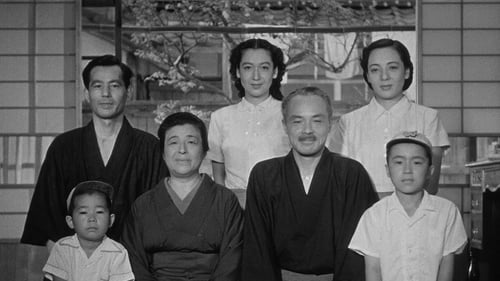
Noriko Mamiya
結婚にあまり興味のない娘と、そんな娘に早く結婚してほしいと気を揉む家族を中心にさりげない日常をユーモアを織り交ぜ淡々と細やかに描く感動作。敗戦後わずか6年の作品とは思えないモダンな息づかいには驚かずにはいられない。北鎌倉に住む間宮家では適齢期を過ぎた娘紀子の結婚が何より気がかり。当の紀子は大手の会社で秘書として働き、いまだのんきに独身生活を楽しんでいる風だった。やがて、そんな紀子に縁談話が立て続けに舞い込むのだったが……。 巨匠・小津安二郎監督を代表する傑作の1本。
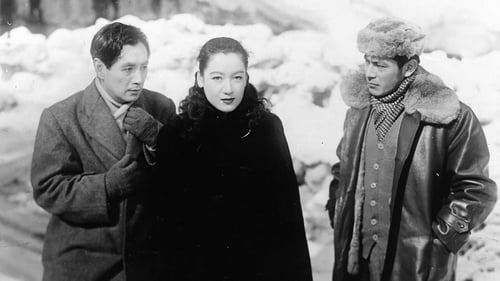
Taeko Nasu
Kameda, who has been in an asylum on Okinawa, travels to Hokkaido. There he becomes involved with two women, Taeko and Ayako. Taeko comes to love Kameda, but is loved in turn by Akama. When Akama realizes that he will never have Taeko, his thoughts turn to murder, and great tragedy ensues.

Teruko
Ebihara is a budding novelist entangled in a complicated web of relationships with three women from three different generations: Kazue, a coquettish teenage war orphan who tries to offer herself for money but is instead taken in by Ebihara, Koyabu, a middle-aged woman who has spent much of her life as the kept woman of a wealthy man, and Teruko, the modest daughter of Ebihara's former teacher who comes to rely on him after the death of her father.

A grade school in Tokyo, where students curse and gamble, has a pond on-premises with one particular teacher who is in charge and takes care of it. The pond holds a number of carp, but someone is snatching them. Amidst the student, one lives with his mother in poverty. The mother works at a factory whose owner is a member of the parent-teacher association and asks her son to help her employer's son to help with homework. Her son is not happy spending time doing this. Finally one day the teacher finds out who is stealing the carp when the poor boy finds out and reports it. It is a child who is not attending the school.
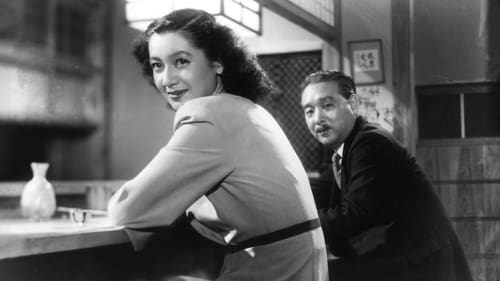
Noriko Somiya
鎌倉で一人娘の紀子と2人で暮らす大学教授の曽宮周吉。妻を早くに亡くしたこともあり、紀子は27歳になる今でも父を置いてよそへ嫁ごうとはしなかった。周吉の実妹・田口まさは、そんな2人が気が気でなく、何かと世話を焼いていた。いつまでも渋る紀子を結婚させるため、周吉はついにある決断をするのだった。

Yukiko Shimazaki
Continuation of The Blue Mountains: Part I. Released a week later.

Yukiko Shimazaki
Teacher Yukiko finds herself in opposition to conservative faculty and villagers after defending a student for being in a relationship with a young man from Tokyo.

Yasuko Ikeda
A matchmaker looks to unite a young woman from a wealthy Tokyo family with the humble owner of an auto garage.
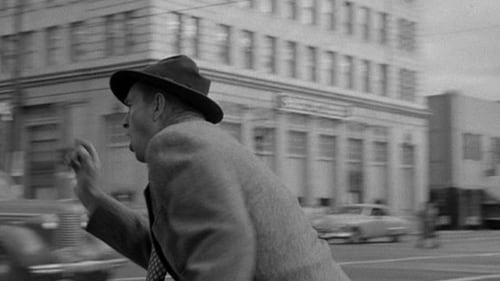
Kuriko Sato
Four unlucky pirates head to a weather tracking station set on a remote island with the intention of holding the weather trackers as hostages and assaulting their next incoming supply ship; but at the station they are told that a serious typhoon is on the way, so the ship will be delayed.

Takako
A young lawyer falls in love with the daughter of his former professor, whom he's hired to tutor his children.
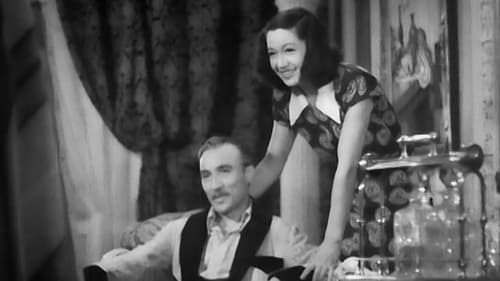
Atsuko Anjo
After Japan's loss in the war, the wealthy, cultured, liberal Anjo family have to give up their mansion and their way of life. They hold one last ball at the house before leaving. The seemingly cold, cynical son secretly grieves for his defeated father and the values that the war destroyed, while the daughter tries to prevent father from taking his life and to find her own place in the new Japan.

Miyako Tomoda
A newly hired daily newspaper writer covering the society beat receives an assignment to cover Tokyo at night by walking and observing it. He gets into the right frame of mind by dressing the part as a vagrant with not a penny to his name. He gets into trouble ending up at the police station slammer overnight. He has no material to write about and, with his assignment unfulfilled, faces a cross editor.
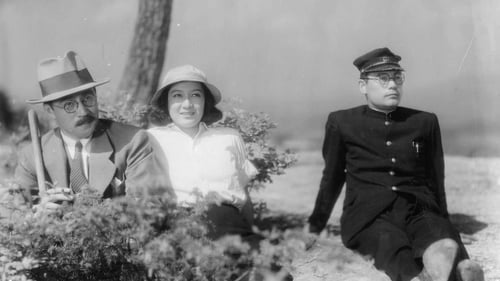
Yukie Yagihara
黒澤明監督の戦後最初の監督作品。京大・滝川事件とゾルゲ・スパイ事件をモチーフに、ファシズムの吹き荒れる時代にあって自らの信念に基づいて強く生きる女性の姿を謳い上げたドラマ。国民的アイドル原節子が芯の強いヒロインを好演。昭和8年。京都帝国大学の教授・八木原の教え子たちにとって教授の一人娘、幸枝は憧れの的。野毛、糸川の二人の学生も幸枝に想いを寄せていた。秀才型で日和見的な糸川に対して実直で行動派の野毛。軍国主義が強まる中、野毛が左翼運動へと身を投じる一方、糸川はひたすらに法曹の道を目指していた。やがて、幸枝は信念を持って行動する野毛に魅力を感じ始めるのだったが……。
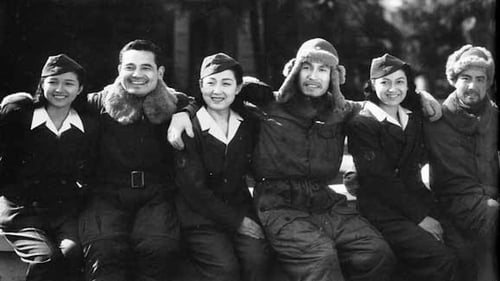
The story of an airport and its air traffic control crew in a remote and northern Japanese town. Three of the air traffic controllers are female with one of them working with her dead fiancé's sister. The engaged man had gone to war and never returned.

It is 1921 and a town has a newspaper which prints urgent bulletins as required. The Washington-based CITES treaty, in which Japan participates, puts a limit on the number of warships any country can possess. As a result, Japan has to decommission a ship to its makers' disappointment. An institute of technology's laboratory designs a new ship. Due to less ships, sailors have to retire and are also disappointed. The laboratory's manager and an admiral are visiting a patient at a hospital and meet coincidentally. The former has a daughter who worries about her father's workload. She asks him to accompany her to a concert. Father has little time, but is convinced for her sake. He is inspired for a ship's design at the performance. The film is inspired by the life of Jo Hiraga.

Kumiko Takagi
Set in wartime at the Yawata Steel Works in Tobata, Yawata, and Kokura cities in Fukuoka Prefecture, the film depicts people taking on the evil blast furnaces that prevent increased production. The film was shot on location at the actual Yawata Steel Works for an extended period of time, and special effects were created using a miniature blast furnace that closely reproduces the actual one.

Young men endure challenging flight training in the Yokaren, a program feeding new pilots into the Army and Navy. By the time of the filming, the pressure of the war had led the government to shorten the training and expand the age range of the recruits. Yokaren was highly selective, and thus an object of great fascination and desire for boys and young men. In this Navy–sponsored film, Setsuko Hara plays the daughter of a family that often entertains recruits on their days off—a surrogate sister to many trainees. Her fragile younger brother aspires to join the program, but is rejected. With perseverance and much support from Hara and their mother, he surmounts his weaknesses and becomes a flier.

Yoshiko
Stalwart soldiers of the Japanese Empire – Japanese and Korean alike – stand in defense of a military outpost threatened by "bandits."

The Opium War is a 1943 black-and-white Japanese film directed by Masahiro Makino. "Ahen senso" in Japan refers to the First Opium War. The story of the film concerns this war.
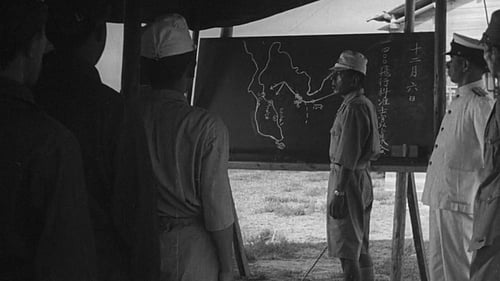
Kikuko
Japanese Navy air cadets train for the attacks on Pearl Harbor and the HMS Prince of Wales.

Set in Qingdao, China, a Japanese company locates an office there and begins work and cooperation with a local Chinese company for business. Many Japanese engineers also move to China, with their families, for the company in order to construct a canal. There are young Chinese resisting the Japanese in this area.

Chizuko
What is marriage? Young couple in match-making wanted to know before they decide. They visited married couples of sisters and brothers. Love comedy in 1942.
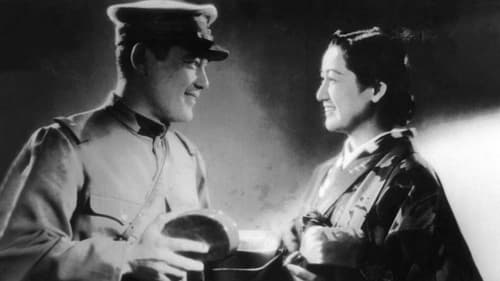
Kuniko
In this semi-documentary, an older locomotive driver is tasked with training younger ones and is currently training two in particular. The old man is finding the task overwhelming as it is hard work with practical lessons and classroom components. His wife has died, but he has three daughters with the oldest taking care of her younger siblings.

Koto Hime
When Sentarô’s father is killed by a drunken samurai, Sentarô avenges him. His deed puts him on the run and leaves his sister behind. While running from both the authorities and the assassins, Sentarô meets with the beautiful travelling-actress Oshima who takes him under her protection.

Yoshiko
Twenty-year-old Yoshiko (Setsuko Hara) and her younger sister Asako (Yōko Yaguchi) struggle to accept changes in their home during the preparations of their widowed father's wedding to his chosen bride, Maki Tsuneko (Sadako Sawamura), who's anxious about her conduct as the bride.

Showa Kinema actress

Part two of two.

Part one of two.

君塚節子
銀座の自動車会社でタイピストとして働く君塚節子は、家庭の事情でお金が必要となり、同じ会社のセールスマン、木幡に一人前のセールスレディにしてほしいと頼む。節子は車の知識を身につけ、セールスレディとしてバリバリ仕事をして、会社で優秀な営業成績を上げる。しかし、木幡はそんな節子に違和感を覚えるようになる。

Mingzhu - Chinese girl
This film attempts to reconstruct the tension of the Battle of Shanghai through an episode in an understated way, introducting its story in a documentary mode. In the film story, Japan's marine regiment protects Japanese residents and Chinese refugees-women and young children-from rampant street fighting, Shanhai Rikusentai unsparingly uses its first eight minutes for an official-mannered self-justification of the war. From the viewpoint of explaining Japan's military operation,the narration refers to the city s spatial division in sync with maps on screen.

亡くなった父親の財産を母子が食いつぶし、唯一の頼りは叔父の株投資。しかしその叔父も相場で失敗して、追い詰められるが、末っ子の娘以外は現実を見ようとしない。

A priest in Hokkaido adopts a blind orphan girl, and as she grows up he finds himself falling in love with her.

Japanese adaptation of LES MISERABLES. The last film of director Itami took inspiration from Les Miserables. Transpiring during the Southwestern War of 1877 in Japan, which was the last civil war in the country, a criminal escapes prison only to be found by a monk. The criminal decides to turn a new leaf based on their conversation and goes on to become a town's mayor. He hears news of a mistaken arrest and identity. The revelation of truth is the start of a series of miseries.

A man attacks the shogun, but does not succeed in his assassination attempt. He flees to the mountains and hides in a shed. There he finds an old man and a girl. The latter is the daughter of Shogun's former wife and also has revenge on her mind. The former is also connected to the castle. Separately a girl lives at the shogun's castle and believes in god.

Keiko
The prewar film Haha no kyoku (Mother's Melody, 1937) is known for its place in Japanese film history as one of the top three melodramas as well as for its authorship: Yamamoto Satsuo is an auteur not usually associated with filming melodramas. Yamamoto made the film right after he moved, along with his mentor Naruse Mikio, to the Toho film company. A number of subsequent postwar mother's films adopted some of its essences, making it a genre-defining moment in Japanese cinema. This great melodrama is atypical of Yamamoto's output, much of which deals with political corruption and inequities within social institutions and offers a strong anti-establishment appeal.

Misuko Yamato
At the invitation of the Japanese Ministry of Education, the former “mountain filmer” Fanck directed this “cultural feature film” with Japanese actors in Japan, making this the first, German-Japanese co-production. The young Japanese man Teruo gets caught up in a conflict between tradition and modernism, when he returns to Japan from Germany after having spent a number of years there studying. Now, he is supposed to marry Mitsuko, the daughter of his adoptive father, to whom Teruo has long been promised. But Teruo, who has gotten to know the freedoms of the western world, would rather marry the woman he loves and behaves brusquely to Mitsuko.

Two brothers run a factory canning crabs. The elder brother Kotaro is righteous and insists on honesty. The younger brother is fixated on money. They are polar opposites. When a boat sails out looking for crab and does not return one day the brothers begin to argue over how to run their facility. They had just received a large order from a foreign country and had obtained a loan from a lender that needed to be repaid.
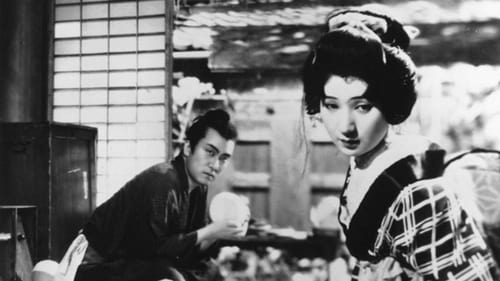
Onami
居酒屋に居候する河内山宗俊と、用心棒の金子市之丞。その日暮らしの生活を送る彼らにとって、甘酒屋の娘・お浪は心の慰めだった。ある日、お浪が不良の弟・広太郎の借金のために身売りすることを知った宗俊と市之丞は、彼女を救うべく手を組むが...。

Student
The film centres around junior high school students. They are members of the school's baseball team. They are very good. Izawa's father asks him to stop playing prior to an important game. Hayasaki health deteriorates at this time and he becomes absent. The team decides to speak to Izawa's father to plead their case and ask for the return of their team member.

